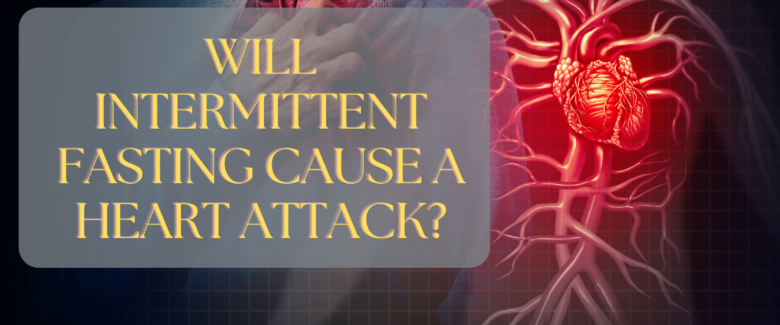Are you scared of Intermittent Fasting?
The AHA wants you to be.
The American Heart Association (AHA) shared a recent press release that we are going to poke some holes in. Are you ready?
The “Study”
A research abstract presented at an AHA event referenced a study of over 20,000 adults. The researchers reported that those who followed an 8-hour time-restricted eating schedule, a type of intermittent fasting, had a 91% higher risk of death from cardiovascular disease.
The Holes in the “Study”
There are so many holes in this study I barely know where to start so I made a list.
These 20,000 plus people (an impressive number I would agree) were asked to recall what they ate in 24 hours. Every day I ask my patients what they have eaten and 90% can not remember. When asked WHEN they ate, my patients recall even less.
Hell, I myself can’t remember.
Using recall for accuracy is notoriously wrong. Just ask any courtroom lawyer.
They were asked a total of two times. TWO. TIMES. What kind of answers can you get from two times?!?
What they ate was not reported. This is bordering on ridiculous!! Were they eating Twinkies and pizza or tofu and beans? Were they skipping meals and so famished that they devoured the entire box of donuts at work? (Don’t tell me you haven’t been tempted, I know you have)
They also didn’t report WHY they were eating in an 8 hour window or less. Were they shift workers? Were they stressed out over a broken relationship? Did they have the stomach flu?
This is not a published study nor is it a peer-reviewed study and was not sufficient information to be released to all the news outlets, no less, an American Heart Association conference.
What You Shouldn’t Fear
You shouldn’t fear intermittent fasting.
I’m not saying you should fast for hours-on-hours, day-in and day-out.
I’m also not saying to eat so much at one sitting that it puts a strain on your body.
What I am saying is that intermittent fasting done right provides many health benefits including reducing the risk of heart attack and stroke.
In my book, The Supercharged Method: Your Transformation from Fatigued to Energized I explain how fasting for a 12 to 15 hour time frame allows for your body to digest undigested food, rest from the digestive process and clean up old and damaged cells. I also recommend eating a balanced meal that focuses on protein and vegetables every 3-4 hours in a 9-12 hour window.
Intermittent Fasting has also been shown in numerous peer-reviewed and published studies to:
Decrease fat
Decrease inflammation
Reduce waist circumference
Improve blood pressure
and
Improve Insulin Sensitivity
All of which improves overall health, heart health and lowers your risk of dying from a cardiovascular event.
What You Should Fear
On the other hand…
What we do know contributes to dying from a cardiovascular event is:
Inflammation
Obesity
Diabetes
Smoking
Alcohol
Sedentary lifestyle
Stress
Energy drinks
Too much caffeine
Certain medication
Toxins
I’m sure that in the future we will have more clarity on this study. Until then start by identifying and removing the things we know contribute to cardiovascular disease.
https://newsroom.heart.org/news/8-hour-time-restricted-eating-linked-to-a-91-higher-risk-of-cardiovascular-death
https://pubmed.ncbi.nlm.nih.gov/28690955/
https://pubmed.ncbi.nlm.nih.gov/35276989/#:~:text=These%20feeding%20schedules%20have%20favorable,in%20dyslipidemia%20and%20blood%20pressure.
Varady KA, Cienfuegos S, Ezpeleta M, Gabel K. Cardiometabolic Benefits of Intermittent Fasting. Annu Rev Nutr. 2021 Oct 11;41:333-361. doi: 10.1146/annurev-nutr-052020-041327. PMID: 34633860.
https://pubmed.ncbi.nlm.nih.gov/33446635/


